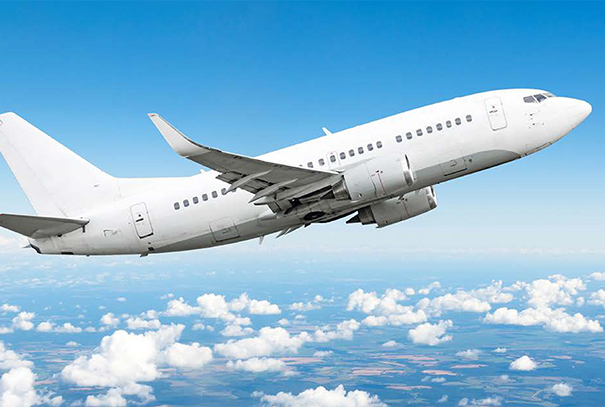
That piece still has much relevance; whilst the car, the burger and how we holiday have changed, by contrast it is somewhat disappointing that how we provide and conduct insurance has progressed at a much slower pace. The specialty insurance industry may have grasped less of the third let alone embraced the fourth industrial revolution than many other industries.
Now we find ourselves clearly in a key moment in history. No one anticipated (other than perhaps some epidemiologists and dare I say Hollywood scriptwriters) we would be at the hands of a global pandemic in 2020, sent home in lockdown and the economy on its knees. The seismic shift we are all now experiencing will perhaps become that disruptor and catalyst for fundamental change.
How we are dealing with this challenge in the short term is to the credit of all: that we have been able to continue to trade from day one at home, to keep the market open and provide the service we only thought possible at the office. Overnight we transformed our spare bedrooms, kitchens, lounges and any spare area into our working space, setting up two screens and immediately binding policies, replacing a long tradition of hard copy slips and ink stamps that many felt could not be replaced. Whilst the technology is not new or entirely sophisticated, the fact that the solution has been embraced by almost all is a surprise to many. Similarly, the ability to maintain face to face where necessary, something no one wants to entirely replace, is an issue only in deciding what actual app or video conferencing provider to use.
Whilst operationally it is a success, it is evident that everyone is busier. The incredible amount of work supporting our clients has intensified and as we now enter into reserving and planning periods, we wait to understand how the world will open up again.
In the face of such significant challenges, the prime focus remains on the client. That we stand by their side is evident but we need to add context. Over my time in the industry, we have seen two gulf wars, 9/11 and SARS. That we are able to step up now should not be a surprise and in the face of risks from ground accumulation and the return to operation for thousands of aircraft the market stands firm in support.
Our responsibility is to service the needs of our clients and that is clear. However, it is also our responsibility to ensure a robust and healthy insurance market survives, without which no business can grow.
Poor results have driven capacity away and pricing recovery is too late for many. The market has responded with only gradual pricing corrections, and through this current crisis, it has been willing to deflate the premium pot and extend credit. The market tries to find the path between what is both the fairest way for clients and insurers alike, and arguably, what is good for insurers is ultimately good for the client.
Alexandre de Juniac of IATA, explains that trust is key as the industry looks to reconnect the world. As we focus on the current crisis, we aim to maintain trust with our clients and consider what broader challenges in our industry we must address post COVID-19.
Many will relish the opportunity to work from home more regularly, but most admit the need for stimulus of an office environment. People are any company’s greatest asset and the success of our business has been the ability to work in teams, grow relationships and networks, to benefit the client where the broker and underwriter relationships are strongest. Getting the right balance is key.
As a market, we need to ensure our product is valued. That clients spend more on toilet roll is a myth but to reverse the notion that our product is just a commodity is key.
Competitive forces such as digitalisation will intensify. Whilst generally the industry has only limited success in keeping up with technology, how we have adapted during lockdown will act as a driver to transform our processes. Costs are key as savings can be passed on. Long may face to face continue but I will be happy if I never have to use a physical stamp again.
Data and predictive analytics are making pricing models more robust, less reactive, and will smooth the cycle somewhat leading to better expertise in underwriting and broking.
We can no longer be blasé and consider the 1 in 100-year event not to occur in our lifetime. The systemic risk of pandemic, cyber and the ‘unknown unknowns’ should be at the forefront of our minds. The emerging risk landscape is real and reliance on capital should not always be taken for granted unless appropriately managed.
Finally, it is our responsibility to fully understand the industry we are aligned with, to avoid disconnection and the tumbleweed at question time. Aviation and Space are driving forces for technological development and innovation and our own insight is key.
Clearly, the clients’ interest remains our focus, we have embraced the challenges of working from home and we are all working flat out all against the backdrop of our own market that has yet to return to sustainable levels. No one can ignore how tragic the pandemic has been, no one has not been touched by it.
Nevertheless, in our parochial world of aviation insurance I look to the future now with more optimism than ever. Admittedly the Cortina was the car of choice when I was about to start driving and as a 16-year old my first holiday was, I hate to admit, to Benidorm. Nonetheless, we will look back at the events of 2019/2020 as the catalyst for the market to address existing and future challenges thus making it fit for the 21st century.
Author: Martin Jackson, Head of Aviation and Space – HDI Global Specialty SE

